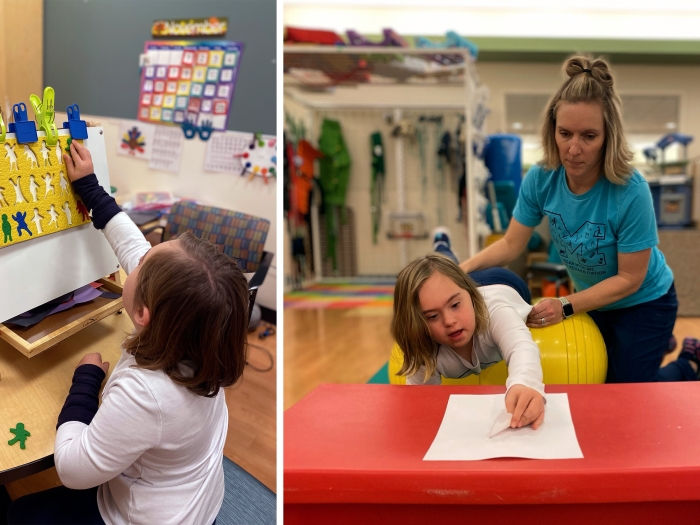A new study finds that adults with cerebral palsy are at an increased risk of experiencing a mental health disorder compared to adults without the condition.
4:56 PM
Author |

A new study, published in Annals of Internal Medicine, highlights the need for increased awareness of mental health disorders among adults with cerebral palsy.
"According to the Centers for Disease Control and Prevention, 1 in every 323 children in the United States has been identified as having cerebral palsy," says Daniel Whitney, Ph.D., an assistant professor of physical medicine and rehabilitation at Michigan Medicine.
"Much of the research regarding cerebral palsy focuses on childhood. However, with modern treatment advances, many of these children grow up to be adults," says Whitney, the study's lead author.
"Unfortunately, far less is known about the health and clinical care needed to promote healthy aging throughout the adult lifespan for this patient population."
Mark Peterson, Ph.D., M.S., FACSM, an associate professor of physical medicine and rehabilitation at Michigan Medicine and the senior author of the study, adds, "For example, how is this patient group's overall health and quality of life in adulthood? There isn't much research available to help answer this question and others."
In the study, Whitney and Peterson focus on mental health in adults with cerebral palsy and find that the patient population experiences an elevated prevalence of mental health disorders.
"And some of these mental health disorders were more pronounced in patients with cerebral palsy that also have comorbid neurodevelopmental disorders, such as intellectual disabilities, autism or epilepsy," Peterson says. "Which makes sense, as patients with cerebral palsy have an increased risk for secondary chronic conditions during childhood."
Clinicians caring for adults with cerebral palsy need to be aware of the increased prevalence of mental health disorders in this patient population.Mark Peterson, Ph.D., M.S., FACSM
Examining data
Whitney and Peterson, both members of the University of Michigan Institute for Healthcare Policy and Innovation, examined insurance claims data for adults, both with cerebral palsy and those without the condition, and if the individual had a mental health disorder.
"We found that adults with cerebral palsy had higher age-standardized prevalence of mental health disorders compared to adults without cerebral palsy," Whitney says.
More specifically, the research team found male adults with cerebral palsy had higher prevalence of schizophrenic disorders (2.8% vs. 0.7%), mood affective disorders (19.5% vs. 8.1%), anxiety disorders (19.5% vs. 11.1%) and disorders of adult personality and behavior (1.2% vs. 0.3%), compared to their male adult counterparts.
"Female patients with cerebral palsy also exhibited similar or higher prevalence of those mental health disorders versus their female counterparts," Peterson says.
The research team did find one exception.
"We found that adult males with cerebral palsy exhibited higher rates of alcohol and/or opioid-related disorders compared to their male counterparts, whereas women with cerebral palsy did not exhibit higher rates of these disorders compared to their female counterparts," Peterson says.
Future implications
Whitney and Peterson agree that the results of this study demonstrate the need for additional focus on the mental health care of adults with cerebral palsy.
"Clinicians caring for adults with cerebral palsy need to be aware of the increased prevalence of mental health disorders in this patient population," Peterson says.
Whitney agrees, "We hope this study highlights the need for improved mental health screenings and access to mental health services and resources for these patients."
Paper cited: Whitney, Daniel G., et al. "Prevalence of Mental Health Disorders Among Adults with Cerebral Palsy: A Cross-Sectional Analysis" Annals of Internal Medicine. DOI: 10.7326/M18-3420
Additional Michigan Medicine authors of the study include: Seth Warschausky, Ph.D., Sophia Ng, M.P.H., Ph.D., Edward Hurvitz, M.D., and Neil Kamdar, M.A.

Explore a variety of healthcare news & stories by visiting the Health Lab home page for more articles.

Department of Communication at Michigan Medicine
Want top health & research news weekly? Sign up for Health Lab’s newsletters today!





